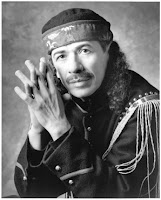 My pastor was preaching today about putting aside things that belong to the Christian's former nature - who you were before you knew Christ. Some of what he said hit me right in the heart. Like don't be the one who complains about your employer promoting other people because God is big enough to take care of you.
My pastor was preaching today about putting aside things that belong to the Christian's former nature - who you were before you knew Christ. Some of what he said hit me right in the heart. Like don't be the one who complains about your employer promoting other people because God is big enough to take care of you.Whannnnnngggg!
His text was from Colossians 3:6-14. Put aside all anger and malice, wrath, railing, etc. The word the Apostle Paul uses for anger is orge which can be both a predisposition to anger or emotional agitation and wrath.
I have to admit, my previous post about my job sounded pretty much like orge. But I am still sorting this out. Because of an abusive childhood, I do have a lot of anger. I get pissed when I am mistreated. I used to just take it, you know, be a good boy, be a nice guy, take the garbage - and seethe internally.
I don't do that any more. I am coming to learn that anger in and of itself is not necessarily a bad thing. It's like the horn on your car. It's a warning signal that something is wrong - that boundary has been violated, that there's danger in the situation, that worse things can happen if you ignore it.
But I still haven't learned how to be assertive without being angry. "No" was not a word that was allowed in our home - at least not if you were a kid. It didn't matter how you were treated, you couldn't say "that hurt, stop it." And the same went with my older brother's sexual abuse. I couldn't say "no" in the middle of the night when he came into my room to sexually abuse me. If I did, mom might find out, and that would be worse. (She found out later; I told her. And true to form she shamed me about it, so she wasn't safe).
But I'm not a child any more. I'm the grown up now and I can say no and mean it. But I am still learning the difference between setting and maintaining a boundary - how to stand up for myself - and being angry about everything. And I realize that some of the feelings I have are leftovers. Left over from childhood. Left over from the garbage dump. And the anger - like powder in a muzzle loader - might be left over from a previous shot that should have been fired but wasn't. But I'm not crazy - where I work is still a toxic place that mistreats its employees. Don't believe me? as the OPM.

